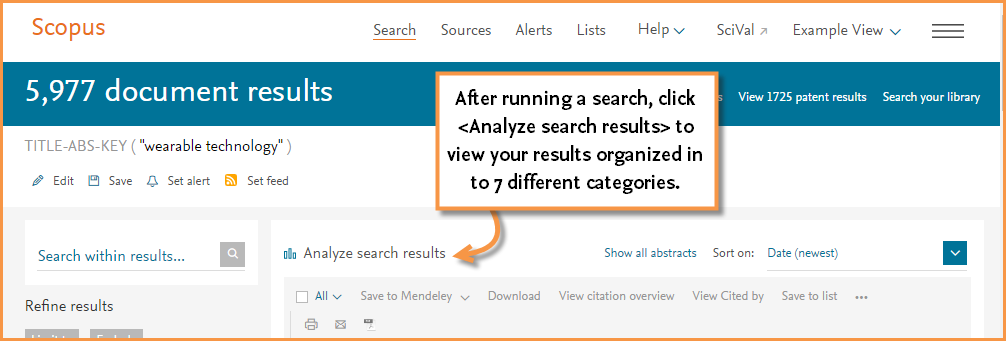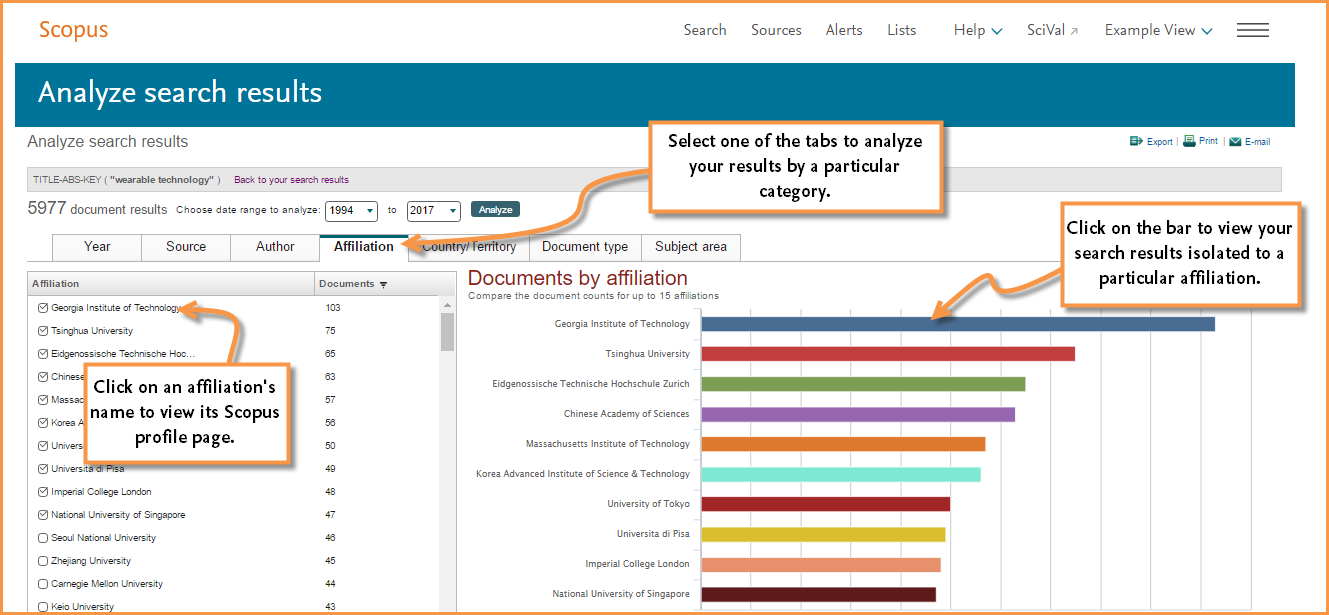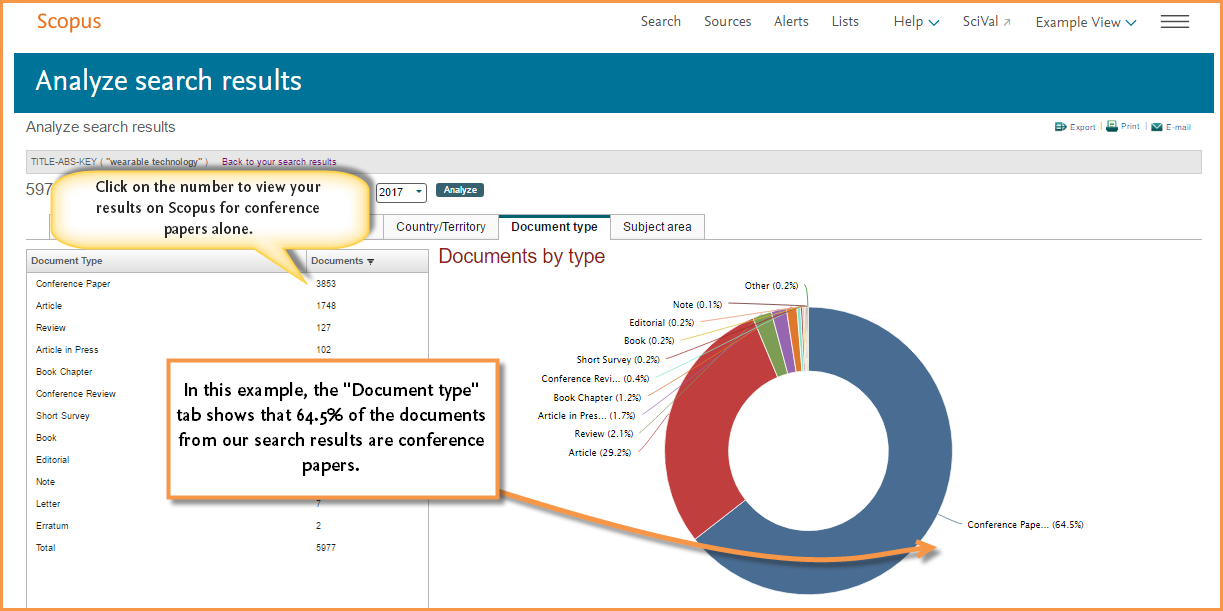Analyze thousands of search results in less than a minute
The next time you search in Scopus, gain more insight into your results by using the <Analyze search results> feature located at the top of your search results page. It provides a visual analysis of your results broken up into 7 categories (year, source, author, affiliation, country/territory, document type and subject area).
EXAMPLE: You want to find out which organizations are producing the most content about “wearable technology.”
- Begin with a search on "wearable technology"
- Your results return a list of over 5,900 publications. To sort through the results quickly, and to find your answer, try clicking on the <Analyze search results> link to find your answer — all in about 30 seconds!
- You will find that your results are now organized in to 7 different catagories
- To find the answer for this example, click on the <Affiliation> tab
- The chart on the right reveals the top 15 affiliations that match the search results. You can also see all the affiliations on the left and the number of matching documents
- Clicking on the number of documents, or the graph, will show you the results on Scopus for a particular affiliation
- Clicking on the title of an affiliation title opens their affilation profile page on Scopus
What else could you learn from these charts? Let's say you decide to browse the other tabs and click on the <Document type> tab. Here you discover that 64.5% of the documents matching your results are from Conference Papers, which could help you isolate the most cutting-edge research.
Overall, the <Analyze search results> tool provides a quick and effective way of breaking down and understanding your search results, guiding you to the information you’re looking for.




